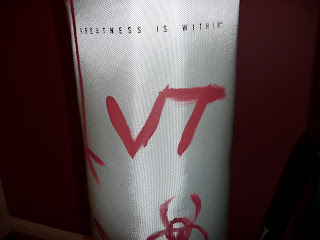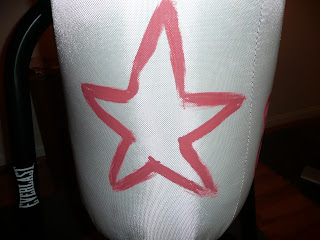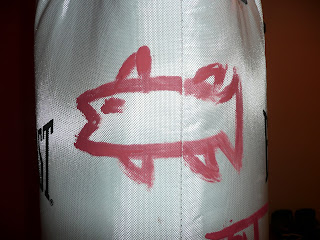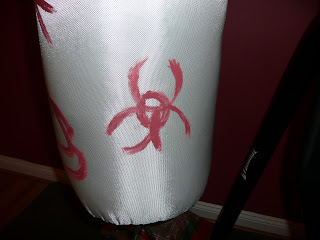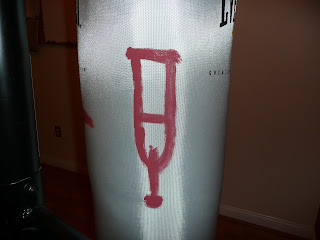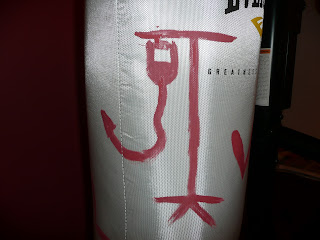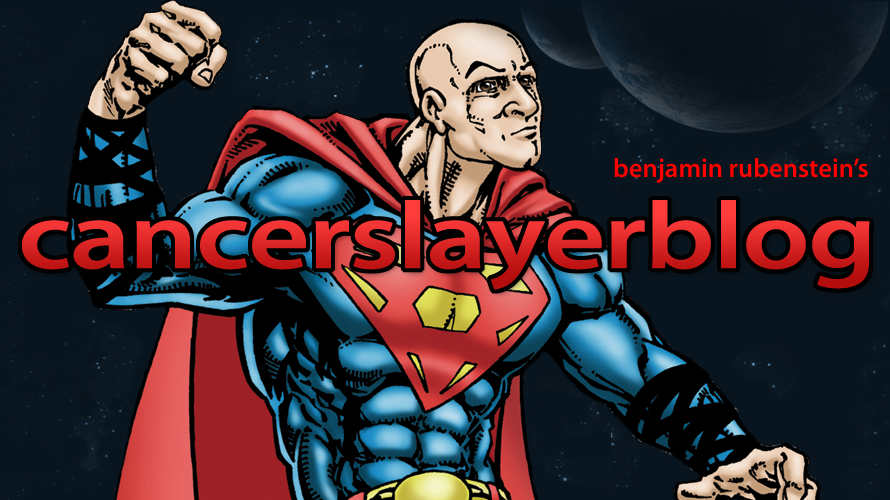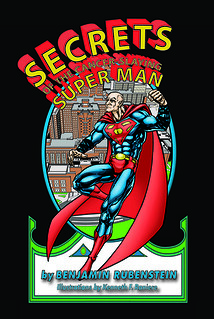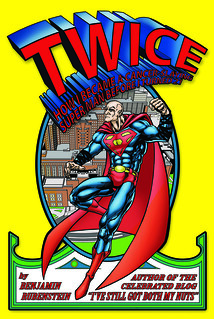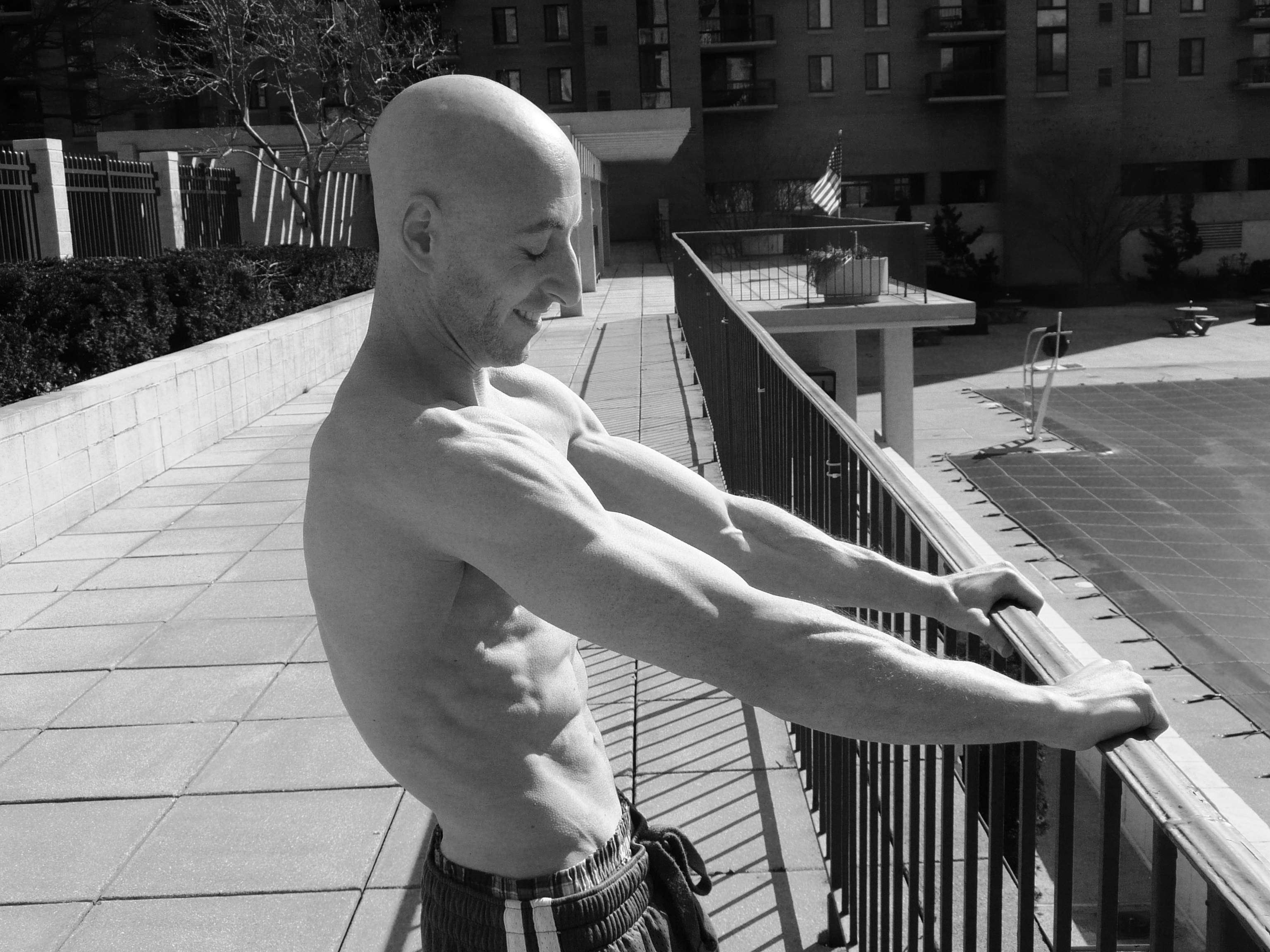Read this first:
I Am a Cancer-Slaying Super Man
J-Heavy walked into the art room where I was about to speak to child and teenage cancer patients, before signing copies of TWICE. J-Heavy’s face was sullen. The smile and excitement he displayed when I met him nine months ago were gone. One of his arms was gone, too—amputated, lost to cancer forever. In its place was the sleeve to his large button-down shirt, empty inside, just dangling.
I said how great it was to see him again. I asked how he was doing.
“OK.”
I asked how treatment was going.
“Fine.”
If treatment was going smoothly then he’d be getting very close to the end. I asked if he would finish treatment soon.
“No.”
J-Heavy’s treatment was not going as planned. This nineteen-year-old had idolized me when he began treatment; looked up to me as his superhero; wanted to mimic me, annihilate cancer like me, be me.
J-Heavy sniffled throughout my talk, and didn’t crack a smile. I was stunned, and didn’t know what to say, so I changed subjects and asked his thoughts on the upcoming Redskins season and whether he plays fantasy football.
Another late teenage patient, E., was engrossed in my story. E. was in a wheelchair and couldn’t see because of a brain tumor. The social worker would read my book to him. The cancer had returned, he told me, and there was no cure. I asked if he was in school.
“Not anymore.”
A very young girl asked if E. would go to college, like I had at the University of Virginia. I looked over at E., tongue-tied. “Maybe someday,” he said. I nodded and smiled at the girl.
I—a two-time pediatric cancer survivor who has suffered through many lifetimes worth of treatment—couldn’t relate to these two young men. They looked to me for answers and guidance and I gave them useless fucking bullshit about who to pick in their fantasy football drafts.
I used to have difficulty empathizing with people—a “borderline sociopath,” I called myself—because of the code I lived by in order to survive cancer. Now I call myself a “recovering borderline sociopath,” and those two young men deeply affected me, illustrating that I’m on the road back to humanity.
I thought I would inspire all those kids with cancer to survive like I had and then go on to live healthy lives. Somehow, impossibly, it got lost on me that they were still fighting a disease that kills one out of five who has it.
I used to look down on people who were unable to communicate with me because I had cancer, and now I couldn’t even say “That sucks,” or, “I’m sorry.” I felt their eyes glare through my fraudulency. I wrote a book about surviving cancer twice—but as a monster would have, not a human. Would they take anything away from this experience?
The social worker then escorted me to private rooms. One boy about to be discharged following a transplant quickly read my first chapter and pleaded to have me visit. I saw some of J-Heavy in this kid—motivated to survive, uplifted by my story. I wondered what would happen to his smile if his treatment took a 180°, his arm was severed like a tree limb, empty sleeve just dangling.
Another visit—a boy who just received his second transplant in a year. He was quiet, small for his age, and kind. He was receiving a form of treatment I’d never heard of—medicine has apparently made some gains in the eight years since my transplant.
A third boy, thirteen years old, had his second transplant a few days earlier. His mother spoke of how close he was with his brothers. The boy was just feeling the high of Ativan when I was there, to relax him. Traumatized. Damaged.
To E. and J-Heavy and so many of the others: That sucks. I am so fucking sorry.
Leia Mais…
